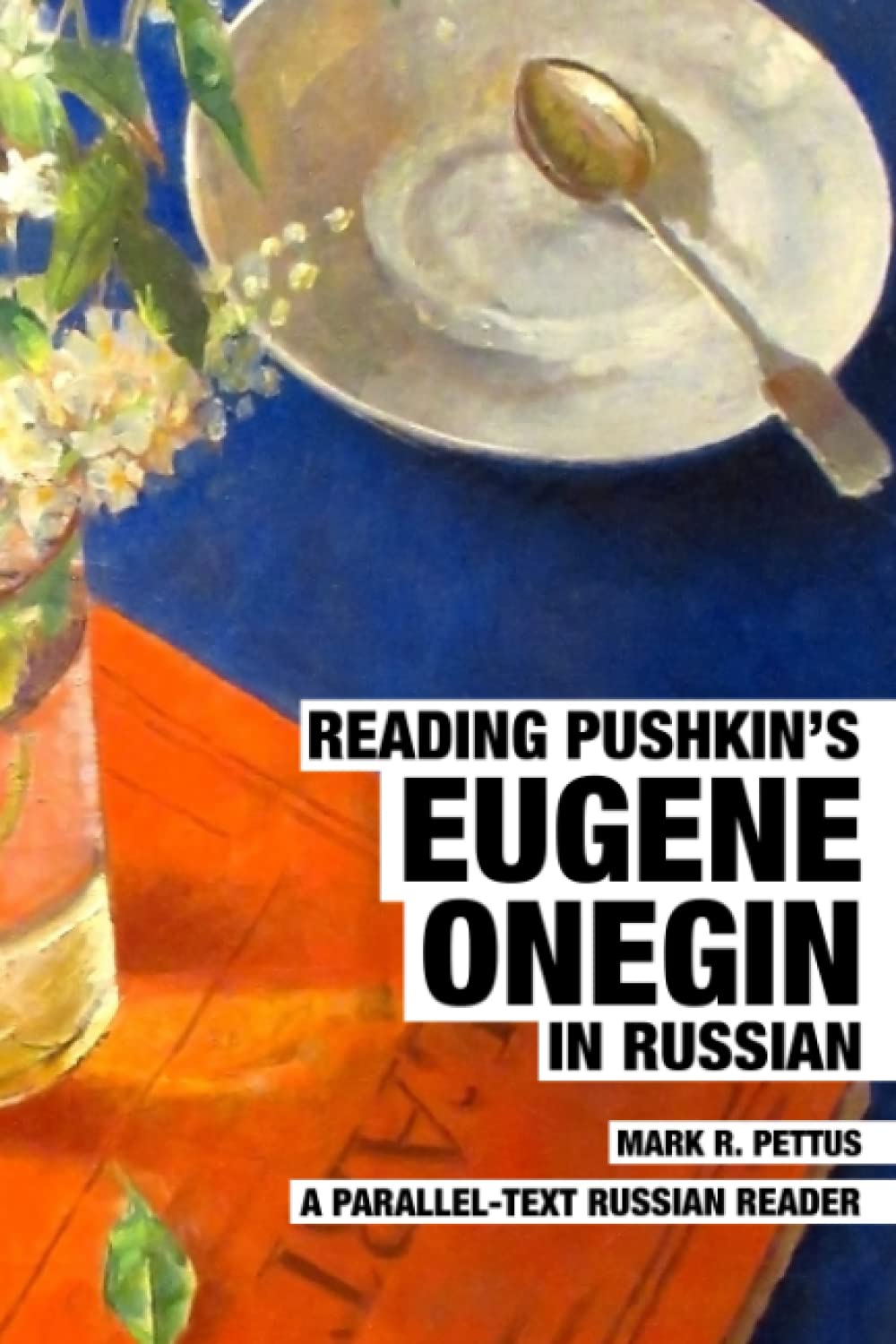
Reading Pushkin’s Eugene Onegin
Mark Pettus (click on the name for his work which has appeared in 96) has produced the the indispensable Onegin. Held to be, (like Shakespeare of Goethe), “untranslatable,” it was rendered with perverse pedantry by Nabokov; nowadays people tend to favor Falen’s silly rhyming version, which reads like a witless iteration of Byron’s Don Juan. Pettus translates with academic accuracy, yet the results are always clear and eloquent. It’s well worth the bulk of the book even if you never take advantage of the magnificently annotated Russian because this translation lets you fathom the content of what Pushkin actually wrote. No other translation is even in the same league: utter accuracy never achieved at the cost of awkwardness.
Pettus own description of the book from the Amazon page
The novel in verse Eugene Onegin — inarguably the most important work in the entire Russian canon, by its greatest poet, Alexander Pushkin — is simply required reading for anyone interested in Russian literature. Now, it’s more accessible than ever in the original: this volume provides the entire Russian text, marked for stress, and with extensive linguistic, historical, and cultural footnotes, to ensure that intermediate to advanced students of Russian can make sense of Pushkin’s every word — with the help of a parallel English translation, made expressly for this purpose, that sticks as closely as possible to the meaning of the Russian original. Vocab notes include aspectual pairs and conjugation types for verbs, irregular plurals and other forms for nouns, and contemporary equivalents for all archaic forms found in the text.
Combining a conversational tone and digressive structure with a simple but powerful story, Eugene Onegin tells of a jaded aristocrat (Onegin), an idealistic young poet (Lensky), and a provincial girl (Tatyana) who risks her honor for the sake of love. The aftermath of her gamble, culminating in a pointlessly destructive duel, changes everyone involved — until, by the novel’s end, the tables are turned in unexpected ways. Along the way, Pushkin meditates on the vanities of high society; on the destructive passage of time (both as a mere elegiac lament, and as a brutal reality); on the relationship between life and literature; on provincial and city life; on inspiration and creativity; and more. The result is a complex and subtle portrait of Russian life — panoramic and dramatic, yet minutely detailed, and intimately told.